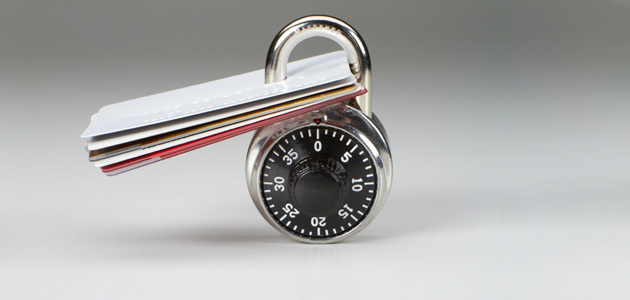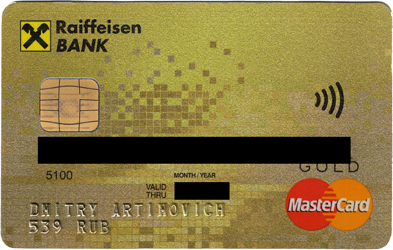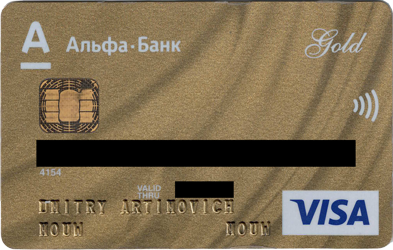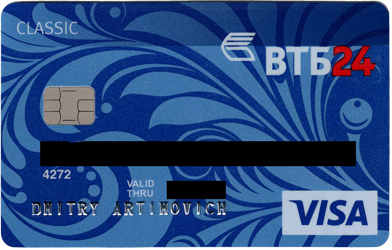Comments: Raiffeisen, Alfa Bank and VTB24

My previous article “ Personal experience: Raiffeisen, Alfa-Bank and VTB24 ” made a lot of noise: +21 and -20 likes and almost 200 comments!
They all treated differently - that “the article is primitive”, and that “fans of Sberbank” have blotted out my post about “long lines”, etc. To begin with, I wrote more positive points for each bank than negative ones. Moreover, my path was by no means Raiffeisen → Alfa-Bank → VTB24 . I use the VTB24 card in parallel, but rarely enough.
So, for the banks:Raiffeisen:
 Dear Khabrahabrovtsy, who began to comment on whether I am right or wrong in challenging. In general, I immediately wrote that it is possible and wrong. But the case is quite extraordinary, and on whose side the IPU would take the arbitration is still a big question.
Dear Khabrahabrovtsy, who began to comment on whether I am right or wrong in challenging. In general, I immediately wrote that it is possible and wrong. But the case is quite extraordinary, and on whose side the IPU would take the arbitration is still a big question.
And I remember exactly that my appeal was simply ignored - “we tried to get through all day.” If they had clearly explained to me why they think that I will lose the challenge of the transaction, and whether I want to try it anyway, is a completely different question. When Raiffeisen really wants to get through, you get a robot call from 9-10 in the morning, which asks you to stay on the line until the operator answers you to conduct a survey. Agree - it just shows the attitude towards the client!
Alfa Bank
 Yes, I completely agree that I have not read the rates myself. It's just for me it's a relic of the 90s. A bank is a financial institution that makes money for its shareholders from deposits that people carry. The bank can invest my money in construction or give out loans. And when I hear that I still have to pay a 5% commission for withdrawing money - it's just something fantastic. Say thank you for keeping my money with you. Those. held)
Yes, I completely agree that I have not read the rates myself. It's just for me it's a relic of the 90s. A bank is a financial institution that makes money for its shareholders from deposits that people carry. The bank can invest my money in construction or give out loans. And when I hear that I still have to pay a 5% commission for withdrawing money - it's just something fantastic. Say thank you for keeping my money with you. Those. held)
VTB 24
 Of course, I myself can go to the ATM and turn on SMS confirmation and 3D-Secure, if possible. Only 3D-Secure was invented not at all to protect the card holder, by the way, as it is written on the website of the same VTB24, but to protect outlets from friendly fraud.
Of course, I myself can go to the ATM and turn on SMS confirmation and 3D-Secure, if possible. Only 3D-Secure was invented not at all to protect the card holder, by the way, as it is written on the website of the same VTB24, but to protect outlets from friendly fraud.
You probably know that to challenge a transaction subject to a password on the website of the issuing bank (3DS - we have SMS) as fraudulent is extremely difficult. But only if the store’s channel is 3D-Secure, and the card does not support this technology, then you will win the contest by 99% (if the bank wishes to start it). And VTB24 itself (i.e. the issuer) will pay for the fraud, and not the acquiring bank (as is the case with the non-3DS channel). This is beautifully called the liability shift in English - the shift of responsibility from the acquirer to the issuer using 3D-Secure technology.
Those. in fact, it’s epic fail by VTB24. Issue cards that can literally harm the bank.
As for the “card fraud” insurance sold in Russia, I generally consider this to be pure fraud:
There are rules of the Ministry of Railways that banks must comply with, and in them the dispute procedure and terms are clearly regulated. The problem here is if the bank does not follow the rules, you cannot complain to Visa / MasterCard. Only IPS participants (banks) can complain.
- After all, it was the banks that made such an imperfect system as the magnetic strip, which still exists even on chip cards. Why should a cardholder pay for their system security flaws? You already put money into accounts, and banks earn money using this money.
The American lawmaker realized this back in 74 by issuing the Fair Credit Billing Act .
Of course, we also have a law of 161 FZ part 9, clause 11, which is written very crookedly and giving you a whole day to report a fraudulent card transaction. Of course, there is also Article 854 of the Civil Code of the Russian Federation , if you remember that each card is tied to an account.
As I already said, our law states that in case of card fraud you have 1 (one!) Day to report it (as opposed to 60 days in the USA). And the bank must either prove that the cardholder actually made the payment, or refund the amount of the transaction.
The lack of jurisprudence and the violation by banks of the rules of the IPU leads to the fact that some banks on operations with a magnetic strip offline equate a PIN code with a handwritten signature. While from the point of view of the Ministry of Railways, the operation is easily disputed and the money is returned. Unlike EMV operation with pincode input.
After all, the magnetic strip is very simply copied, after which a duplicate of the card is made and your money pays for purchases in the store, or simply removed at an ATM.
In America, this all became overgrown with judicial practice and resulted in Zero Liability, which the MEAs publicly declare, and do not sell you insurance.
And once again I repeat: when at least one bank reaches, that whoever first gives the market this same Zero Liability will conquer the emissions market in Russia!
